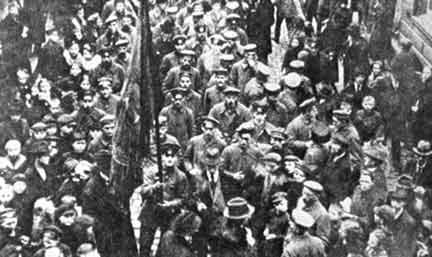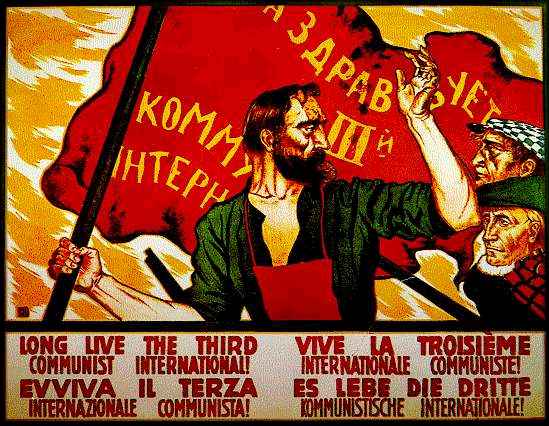
Painting slogans for the Congress of the Peoples of the East, September 1920, Baku. Photo from IISG.
By John Riddell
July 21, 2011 -- http://johnriddell.wordpress.com, posted at Links International Journal of Socialist Renewal with the author's permission -- Just under a century ago, the newly founded Soviet republic embarked on the world’s first concerted attempt to unite diverse nations in a federation that acknowledged the right to self-determination and encouraged the development of national culture, consciousness and governmental structures. Previous major national-democratic revolutions – in Britain, France, Germany, Italy, the United States – had been made in the name of a hegemonic nation and had assimilated, marginalised or crushed rival nationalities. The early Soviet regime, by contrast, sought to encourage, rather than deny, internal national distinctiveness.







